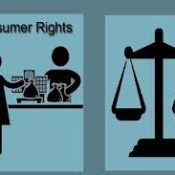
Justice in Action: Comprehensive Insights into Civil & Criminal Litigation
In the legal world, disputes and conflicts are inevitable, and resolving them requires a structured and strategic approach. Civil and criminal litigation serve as the primary avenues for enforcing rights, seeking remedies, and ensuring justice under the law.
Civil Litigation:
Civil litigation deals with disputes between individuals, organizations, or entities over rights, obligations, and liabilities. Common civil cases include contract disputes, property issues, family matters, and tort claims. The aim is typically to seek compensation, specific performance, or injunctions rather than punitive action.
Criminal Litigation:
Criminal litigation involves cases where the state prosecutes individuals or entities accused of committing offenses defined under criminal law. It covers theft, assault, fraud, cybercrime, and other criminal acts. The objective is to establish guilt and ensure accountability through penalties, imprisonment, or fines.
Key Elements of Effective Litigation:
Legal Strategy: Careful planning and understanding of case facts are essential.
Evidence Management: Proper collection, documentation, and presentation of evidence strengthen the case.
Representation: Experienced advocates guide clients through complex court procedures.
Alternative Resolution: Mediation or arbitration may be explored to resolve disputes efficiently.
Why Professional Legal Support Matters:
Navigating civil or criminal litigation without expert guidance can lead to delays, losses, or unfavorable outcomes. Professional legal representation ensures that rights are protected, cases are argued effectively, and justice is pursued diligently.
In essence, whether it is defending against criminal charges or resolving civil disputes, litigation is the backbone of justice. Strategic planning, strong advocacy, and procedural knowledge empower individuals and organizations to secure favorable outcomes while upholding the rule of law.
All Categories
Recent Posts
Consumer Protection Law: Safeguarding Consumer Rights
Tags





